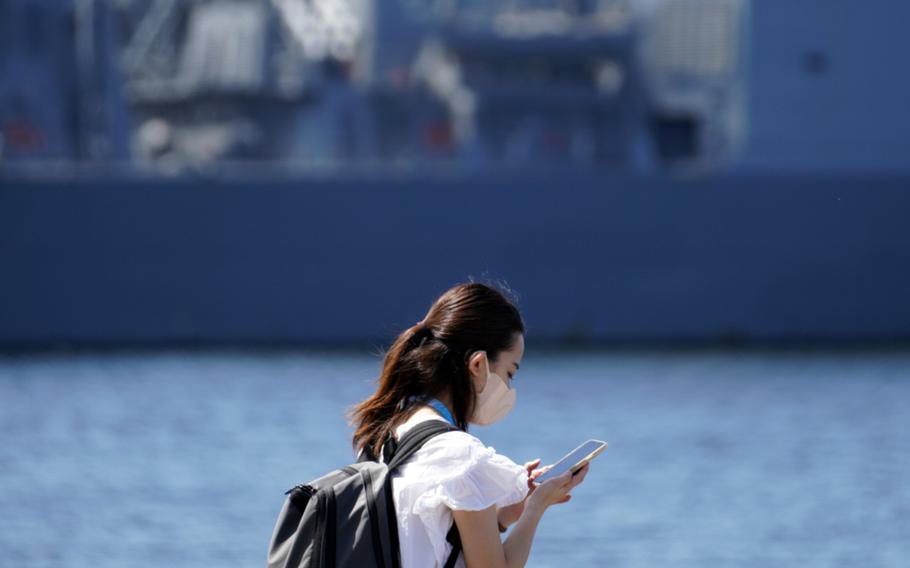
Japan first imposed COVID-19 border control measures in February 2021 and tightened them in November 2021 to some of the strictest among the Group of 7 nations. (Akifumi Ishikawa/Stars and Stripes)
TOKYO – The Japanese government lifted most of its coronavirus-related border control measures on Saturday, a week earlier than the date it announced in April.
Travelers and returnees no longer need to show proof of a negative COVID-19 test taken within 72 hours of departure or a valid COVID-19 vaccination certificate of three doses, Chief Cabinet Secretary Hirokazu Matsuno said at a news conference Friday.
However, travelers entering Japan with COVID-19 symptoms are still subject to on-arrival tests and treatment for positive test results until May 8, Matsuno said. Travelers entering from mainland China by direct flights will be subject to the same measures.
“The border control measures will be changed from the viewpoint of facilitating travelers returning from overseas during the holidays,” Matsuno said. Japan until May 7 celebrates an annual series a holidays known as Golden Week.
The country is reclassifying COVID-19 into a category with seasonal influenza.
Starting May 8, Japan will also introduce a new system using genomic surveillance of infectious diseases to monitor new infectious diseases entering the country, Matsuno said.
Japan first imposed border control measures in February 2021 and tightened them in November 2021 to some of the strictest control measures among the Group of 7 nations.
Those measures required returning Japanese nationals to quarantine at designated hotels and forbade most nonresident foreigners from reentering the country at all. U.S. troops and others under the status of forces agreement were among the exceptions.
Japan gradually increased the maximum daily number of incoming nonresident foreigners in March 2022 and lifted those limits completely in October.